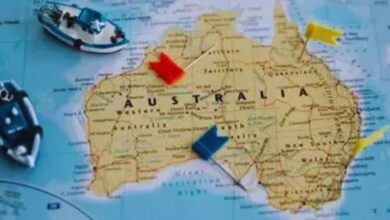MOVE TO AUSTRALIA WITHOUT A SKILLED OCCUPATION: IDENTIFYING THE CHALLENGES, OFFERING SOLUTIONS AND ADDRESSING FREQUENTLY ASKED QUESTIONS

Many people across the world view Australia as a dream destination for overseas immigration. What makes this land so popular and attractive? In addition to being a land of beauty with astonishing islands Australia also offers great business and employment opportunities for skilled workers. If you are hoping to move permanently to Australia, having a skilled occupation will make the process easier.
What are Skilled Occupations and their demand in Australia?
Skilled Occupations in Australia refer to those jobs that are often aligned with Australia’s Skilled Migration Program and require certain amounts of training, qualifications and experience. These jobs play an important or somewhat crucial role in economic growth across various sectors, and their demand depends on local skill shortages. Given below in the table are jobs listed as having high demands according to recent updates of (2025)
| Occupation | Demand Level | Notes |
| Registered Nurses | High | Ongoing shortage nationwide |
| Software Engineers | High | Strong growth in tech sector |
| Construction Managers | High | Due to infrastructure boom |
| Electricians | High | Supported by housing growth |
| Early Childhood Teachers | High | Government focus on education |
| Chefs | High | Hospitality recovery post-COVID |
| Cyber Security Specialists | High | National priority sector |
| Accountants | High | Stable demand across industries |
| Mechanical and Civil Engineers | High | Driven by mining and infrastructure |
| Aged and Disability Carers | High | Growing aged care sector |
Read Also:
Vegetable Farm Worker Jobs in Canada
Can Only Skilled Workers Move to Australia? Pathways, Challenges and Solutions
Given the high demand for skilled workers in Australia one might ask whether moving to Australia is possible only if you are a skilled worker? The answer to this is NO, while immigrating to Australia without a skilled occupation is challenging, because the country has a points-based immigration system that highly favors skilled migrants. There are still many strategies and pathways open for consideration by unskilled workers. Given below is detailed discussion of the various options available for unskilled migrants
To move to Australia without a skilled occupation, you can explore options like skilled regional visas (provisional), state-sponsored visas, family sponsorship, or employer-sponsored visas, even if your profession isn’t on the skilled occupation list. Partner visas and student visas can also be pathways, especially if you have a partner in Australia or plan to study there.
1. Skilled Regional (Provisional) Visa (Subclass 491):
- For skilled workers willing to live and work in regional Australia.
- May have fewer points requirements than other skilled visas and needs state or territorial government nomination.
2. State-Sponsored Visas (Subclass 190):
- This is a permanent visa for skilled workers nominated by a state or territory government.
- It can be an option if you don’t meet the points requirements for a Skilled Independent Visa (Subclass 189).
3. Family Sponsorship:
- You can be sponsored by close family members either citizens or PR. You will not need a job offer and can move to Australia if sponsored in this manner.
4. Employer Sponsorship:
- Some Australian employers might also be willing to sponsor you for a job if they can prove that they really need you. All you need to do in this case is to demonstrate your skills and experience to the employer and if possible, network with potential employers. This can lead to permanent residency (Subclass 186)
5. Partner Visa:
- This is another option open for those who have long on-going relationships with Australian citizens. This allows you to live, study and work in Australia leading to permanent residency but you will be required to provide genuine proof like shared bills or photos of your relationship.
6. Student Visa (Subclass 500):
- This can be a steppingstone to obtaining permanent residency in Australia. If you study and work, you may become eligible for a Temporary Graduate visa (Subclass 485) upon graduation.
7. Other Options:
- Working Holiday Visa (Subclass 417),
- National Innovation visa
- Temporary Skill Shortage (Subclass 482)

Read Also:
Ice Cream Maker Jobs In Canada
The challenges involved and their solutions
Moving to Australia without a skilled occupation? That is a tough move, since the country’s immigration system is largely designed to attract skilled workers and is a points-based system. In simpler terms without the right qualifications or an in-demand job it would be harder to find the right visa, plan permanent or long-term residency, and find stable work. However, with the right strategy like studying a relevant course, gaining local experience or finding the right visa you may be able to build a path to living and working in Australia. Mentioned below are some of the challenges you are most likely to face along with practical solutions for overcoming these obstacles:
1. Limited Visa Options
Skills are important in obtaining the right visa in Australia. If you do not possess a skill that is on the official list, your chances of qualifying for skilled visas like subclasses 189 or 190 are likely to suffer a blow. While other visas may still be available, they are harder to get and have more rules.
Solution
The best bet for overcoming this obstacle would be to broaden your options. Improve your chances by looking into regional visas like (subclass 491) that have more relaxed rules and allow you to live or work in a rural area or smaller towns.
You can also try enrolling in a hands-on course that can lead to a job on the skilled occupation list. Use steppingstone visas (student or working holiday visas) or talk to a registered migration agent to help you find the best visa option suitable for your situation.
2. Harder to Find a Job
Lack of recognized skills or qualifications leads to fewer job options, especially in major cities. Employers may be hesitant to employ individuals who cannot stay for long. Unskilled jobs pay less and offer little or no job security.
Solution:
Improve your job prospects by gaining local qualifications such as RSA (for bar work) or White Card (for construction). These can open job opportunities fast for you. Work as volunteer or intern to gain Australian experience which the employers will value. Also having an up-to-date resume in accordance with Australian standards and using community job resources can help make a big difference in your job hunt.
3. Money Can Be Tight
In expensive cities like Sydney and Melbourne if you do not have a skilled job, you are likely to struggle to earn just enough. Rent, food, insurance, and transport all add up and some visas, like student visas, only let you work part-time, which limits your income.
Solution:
To keep the financial strain to a bare minimum, you will need to manage your finances strategically. In the beginning look for cheaper cities to settle in like Hobart or Adelaide or smaller towns that are more affordable than Sydney or Melbourne. Make use of student visas that allow you to work part time 48 hours (about 4 days) every two weeks, along with your studies. Look for scholarships and most importantly make a budget to manage your monthly expenses.
4. No Clear Path to Stay Permanently
Lack of a skilled job makes your chances of becoming a permanent citizen or resident bleak, since most permanent visas require a skill that is in high demand or a sponsorship from either a state or an employer. If you don’t have a skilled job, it’s tough to stay in Australia long-term
Solution:
You can build a path to permanent residency in Australia by planning strategically. Study something that is on the skilled occupation list like nursing or IT. Use post- study visas to gain work experience that aim to sponsor ship with an employer who is willing or apply for state nomination.
5. Complicated Rules and Paperwork
Moving to Australia without a skilled occupation is further complicated by the country’s immigration rules that are strict and often subject to change. Unskilled workers are likely to get confused and make mistakes on visa applications.
Solution:
To overcome this obstacle, you need to get help and stay informed. Make use of official websites for accurate visa information. Ask a migration agent to help with the paperwork, make everything legal and accurate, avoid mistakes and save time and money. Rules change often, it would be better if you sign up for updates, read newsletters, or join online forums to stay in the loop.
6. Relying on Education or a Partner
As an unskilled worker you might need to rely on education or apply for a partner visa if skilled visas are not an option. Both choices have pitfalls, while tuition is expensive, a partner visa requires strong proof and long time to be approved.
Solution:
You can avoid these pitfalls by making smart choices. Avoid low-quality schools or programs that don’t lead to good job outcomes. Study in a field that’s in demand. If applying for a partner visa, keep records like shared bills, photos, and joint leases from the beginning.
Even if you’re not married, living together for 12 months might make you eligible for a partner visa. Some visas take a long time. Make sure your finances, housing, and support systems are ready for delays.
Read Also:
Hotel Cleaner & Room Attendant Jobs In Japan
Top 10 FAQs: Moving to Australia Without a Skilled Occupation
- Can I move to Australia without having a skilled job?
Yes, but your visa options will be more limited. You’ll likely need to explore student, Working Holiday, partner, or regional visas.
- What visas are available if I don’t qualify for skilled migration?
You might be eligible for:
- Student visa (subclass 500)
- Working Holiday visa (subclass 417 or 462)
- Partner or family-sponsored visa
- Regional skilled or state-nominated visas (with lower requirements)
- Can I still get permanent residency (PR) without a skilled occupation?
It’s more difficult, but possible. Many people build a pathway by studying a relevant course, working regionally, or through a partner visa.
- Is studying in Australia a good way to qualify for PR later?
Yes—especially if you study a trade or profession that appears on the skilled occupation list (like nursing, IT, or cookery).
- Can I get a job in Australia without formal skills or qualifications?
Yes, in sectors like hospitality, cleaning, farming, or construction. Getting short local certificates (e.g., RSA, White Card) helps a lot.
- What is a regional visa and why is it useful?
Regional visas (e.g., subclass 491) allow you to live and work in less populated areas, where visa criteria are often more flexible and PR pathways may be easier.
- How expensive is it to live in Australia without a skilled job?
Living costs can be high, especially in big cities. Consider starting in more affordable areas like Adelaide, Hobart, or regional towns.
- Can I bring my partner or children with me?
Usually, yes—but you’ll need to show that you can support them financially and meet the visa requirements.
- Do I need a migration agent to apply for a visa?
Not required but strongly recommended especially if your case is complex. A registered migration agent can help you avoid mistakes and find better options.
- What’s the best way to increase my chances of staying long-term?
- Study a course linked to PR
- Gain local work experience
- Live in a regional area
- Apply for state or employer sponsorship when eligible



